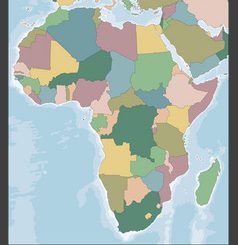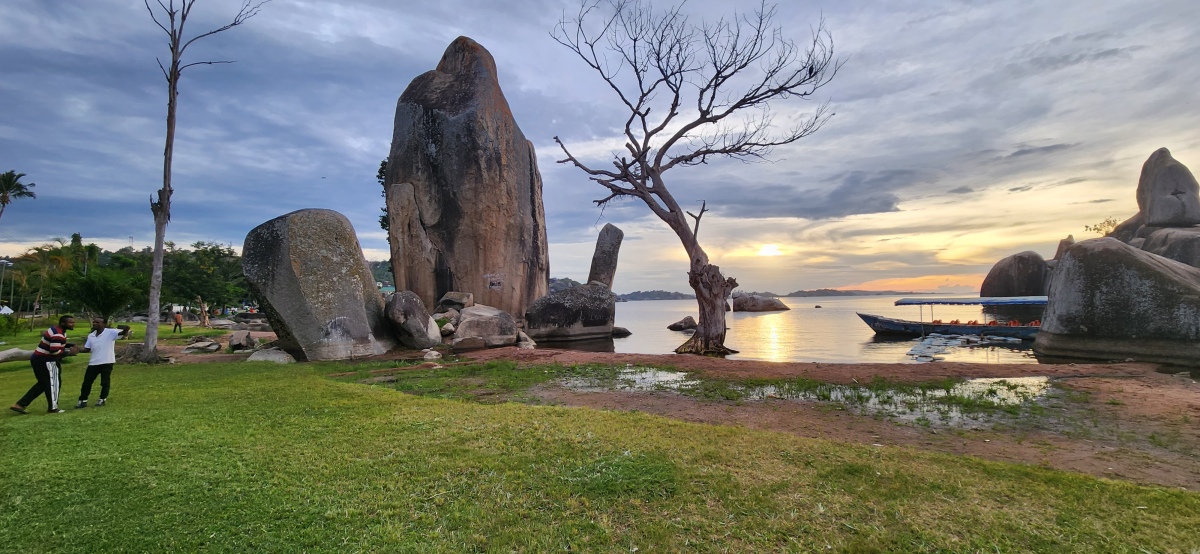What Was I Thinking? What Possessed them to Go?
Everything about this seems wrong. Everything. What if I could convince people from Australia to come to Tanzania after the conference in Kigali to visit the church on the ground and see the real Africa? It was an ambitious thought for someone not known as ambitious.
From April 2022 I was in Musoma, Tanzania volunteering with the Anglican Diocese of Mara at the invitation of Bishop George Okoth, who I had come to know through my work at Anglican Aid. Prior to departing Australia, I remembered the post GAFCON tour of Israel organised by a pastor from Sydney which was professionally organised by Sam, a guide who gave us lots of insights in the land of Jesus.
The issue for me was Jesus didn’t set foot in Tanzania, I am not a tour guide and this would be cheap as was the 2018 trip to Israel but in areas where 1 star accommodation was luxurious by local standards.
The purpose of doing something as crazy as this was that the Tanzanian church is struggling and its relationships in the UK are tenuous and it needs friends from Australia who might take an interest in partnering through prayer, visits and support through skills and knowledge transfer, training and money. Tanzania at one time had over 100 CMS missionaries here but will soon have one.
The other issue is the Tanzanian church is divided itself. American money, and lots of it is influencing relationship and orthodox bishops are seeking to remain true to the Biblical gospel which is under attack in the western church. Money is a new form of colonialism by imperial powers seeking to overthrow the faith once delivered by them when thy were orthodox.
On arrival last year the task seemed overwhelming and I had lost heart but after communicating with a Sydney pastor who encouraged me I pressed on. I discussed the concept with Bishop Mwita Akiri, chair of GAFCON Tanzania whch counts a dozen members of 28 dioceses. He was supportive as were his fellow bishops in Mara and Rorya Dioceses.

Rather than promoting a tour like tour companies do, this was a personal invitation from the Chair of GAFCON Tanzania and Bishop of Tarime Diocese. The letter was circulated to delagates in Australia registering for the conference while details were arranged. A rough itinerary and two pages of explanation accompanied the letter.
The logistics were complex and I decided the easiest and cheapest option was for people to fly to Nairobi from Kigali after the conference ended and bus it down to Tanzania. A kenyan tour operator who arranged my climb up Kilimanjaro provided quotes and I budgetted a minimum of fifteen by October to be confident of proceeding. However the numbers were thin and that idea was canned. A local bus operator in Tanzania know to the local bishop in Tarime was met prior to my departure in October and discussions occurred about his capacity to runa bus for a week from Tarime to Nairobi and all planned visits in Tanzania until each person was dropped either at an airport in Mwanza or a hotel.
So while numbers were still thin by November, the Kenyan company was cancelled and once 12 people committed I knew it was on. The bus at 29 seats was going to be limited to 18 plus the driver and I. As numbers increased the cost reduced as the bus hire was split eventually by 19 people.
In concert with the bishops an itinerary was planned. The Archbishop of Sydney, Kanishka Raffel had also been invited by Mara Diocese to come to open Shalom School so it was possible the church would be managing two lots of visitors. This was eventually confirmed.

The early invitation included an overight in Serengeti and when feedback suggested a shorter tour than the 10 days I had initially planned, this was scrapped in favour of a drive through the park while I was at the Shalom opening.
Accommodation was arranged in Tarime at a farm that the church owned which had basic accommodation and meals in a shared dining room. Rustic would be an apt decription with running water and electricity.
People were responsible for their own flights. Everything from Nairobi to Mwanza was covered except lunch on Saturday. The anglican Church Guesthouse in Nairobi was booked and communications with them was excellent. Costs were paid as they occurred so by February all Nairobi costs had been covered in Kenyan shillings. The Tanzanian costs were all budgetted in Tanzanian shillings.
The accommodation in Bunda was a hotel which I spotted opposite the bus stop and when next in Bunda I visited and saw it was opened in 2020 during Covid. Booking six months in advance was a challenge as they had no concept that people booked so far ahead. As numbers increased a local church contact would update the booking each time.
By Christmas all was finalised and barring a pandemic the only financial risk was each person’s Nairobi booking which was paid in advance.
Wise is a foreign exchange provider which made managing the payments a breeze. Costs were minimal compared the normal banking system and each cost was paid in local currency with less than 1% fees and a mid market rate (Banks in Australia charge a spread of 3-5 percent depending on currency). Finalising the accounts was also a breeze as I was able to download all transactions, filtering them by currency.
Final costs were about AU$800 per person with a minor reduction for married couples for accommodationinBunda. The final group was made up of
The group comprised the following:
- Five ordained clergy and three clergy wives
- Staff member from Anglican Aid
- Executive Director Anglican Relief and Development Fund Australia
- A former missionary to Tanzania now retired and her daughter who grew up there. Both were fluent Swahili speakers.
- The 15 year old daughter of a clergy couple whose school supports Bunda Girls Secondary School and Shalom School in Bunda
- Six lay people made up of a married couple, one female and three males (self included).
- Of the nineteen, two were medical practitioners and two were journalists (one of the clergy was a radio journalist before going into the ministry, the other a former SMH and Eternity Magazine Editor).

Our group of travellers ready to leave Nairobi on Saturday morning 22 April 2023


Our print journalist now posts daily on his blog The Other Cheek kept readers updated daily on what he called the Gafcon tiki tour (Contiki Tours were a rite of passage for young people in the 1970s and 80s. I will be posting about daily activities but if you want a flavour of what is to come John’s articles provide aspects of what occurred daily. My blogs will be pictorial more than editorial.
By the way I don’t begrudge travel agents now charging a fee after experiencing the work involved in travelling arrangements.












































